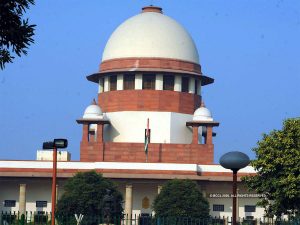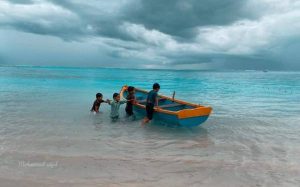Today Current Affairs: 5th August 2021 for UPSC IAS exams, State PSC exams, SSC CGL, State SSC, RRB, Railways, Banking Exam & IBPS, etc
Table of Contents
Tribunals Reforms Bill, 2021:

The Lok Sabha passed the Tribunals Reforms Bill, 2021. The Bill replaces a similar Ordinance promulgated in April 2021.
The Bill provides for:
- Uniform terms and conditions of service for Chairperson and Members of various tribunals, including the following, namely:
- Search-cum-Selection Committee for tribunals other than State Administrative Tribunals to be headed by the Chief Justice of India or a Judge nominated by him;
- Search-cum-Selection Committee for the State Administrative Tribunal to be headed by the Chief Justice of the High Court of the concerned State;
- age of retirement to be seventy years for Chairperson and sixty-seven years for a Member;
- the Chairperson and Member of a Tribunal shall be eligible for reappointment.
- Abolition of tribunals or authorities under various Acts by amending
- the Cinematograph Act, 1952,
- the Copyrights, Act, 1957,
- the Customs Act, 1962,
- the Patents Act, 1970,
- the Airport Authority of India Act, 1994,
- the Trade Marks Act, 1999,
- the Geographical Indications of Goods (Registration and Protection) Act, 1999,
- the Protection of Plant Varieties and Farmers’ Rights Act, 2001,
- the Control of National Highways (Land and Traffic) Act, 2002;
- Transfer of all cases pending before such tribunals or authorities to the Commercial Court or the High Court, as the case may be, on the appointed date.
National Child Labour Project:

In 2020-21, over 58,000 children were rescued across India from work, rehabilitated and mainstreamed under the National Child Labour Project, according to figures tabled in Lok Sabha by Minister for Labour and Employment.
- The National Child Labour Project (NCLP) Scheme is a Central Sector Scheme.
- Under this Scheme the District Project Societies (DPS) are set up at the district level under the Chairmanship of the Collector/District Magistrate for overseeing the implementation of the project.
- Under this Scheme, the children in the age group of 9-14 years are withdrawn from work and put into NCLP Special Training Centres, where they are provided with bridge education, vocational training, mid-day meal, stipend, health care etc. before being mainstreamed into formal education system.
- The children in the age group of 5-8 years are directly linked to the formal education system through a close coordination with the Sarva Shiksha Abhiyan.
- A dedicated online portal named PENCiL (Platform for Effective Enforcement for No Child Labour) is developed in order to make the NCLP successful through better monitoring and implementation
- Under this Scheme, funds are provided directly to the District Project Societies who in turn engage and allocate the funds to NGOs/Voluntary Agencies/Civil Societies Organisation etc. for running of Special Training Centres.
Essential Defence Services Bill 2021:

The Bill was recently passed by the Lok Sabha.
- The Bill aims to prevent the staff of the government-owned ordnance factories from going on a strike.
Highlights of the Bill:
- It is meant to “provide for the maintenance of essential defence services.
- The Bill defines Essential Defence Services: It includes any service in any establishment or undertaking dealing with production of goods or equipment required for defence related purposes or any establishment of the armed forces or connected with them or defence.
- The Bill also empowers the government to declare services mentioned in it as essential defence services.
- It prohibits strike and lockouts in “any industrial establishment or unit engaged in essential defence services”.
- The Bill amends the Industrial Disputes Act, 1947 to include essential defence services under public utility services.
- Besides, the bill has also defined strikes and punishments for violations.
NASA’s Boeing Starliner Spacecraft:

The launch of Boeing’s uncrewed Starliner Orbital Flight Test-2 (OFT-2), which was supposed to lift off from the Space Launch Complex-41 on Cape Canaveral Space Force Station in Florida on Tuesday, has been postponed once again.
CST-100 Starliner:
- The spacecraft, which is called the Crew Space Transportation-100 (CST-100) , is part of an uncrewed test flight to the International Space Station (ISS).
- The mission is part of NASA’s Commercial Crew Program. Its objective is to make access to space easier in terms of its cost, so that cargo and crew can be easily transported to and from the ISS, enabling greater scientific research.
- The Starliner, which is supposed to carry more than 400 pounds of NASA cargo and crew supplies, will take roughly 24 hours to reach the ISS, after which it will dock there.
- The spacecraft has been designed to accommodate seven passengers or a mix of crew and cargo for missions to low-Earth orbit.
- The Starliner has an innovative, weldless structure and is reusable up to 10 times with a six-month turnaround time. It also features wireless internet and tablet technology for crew interfaces.
Sabki Yojna Sabka Vikas Campaign:

Government launched ‘Sabki Yojna Sabka Vikas’ campaign for inclusive and holistic preparation of Gram Panchayat Development Plan (GPDP).
- Under Article 243 G of Constitution, Panchayats have been mandated for preparation and implementation of plans for economic development and social justice.
- With this aim, People’s Plan Campaign titled ‘Sabki Yojna Sabka Vikas’, for inclusive and holistic preparation of Gram Panchayat Development Plan (GPDP) was launched from 2nd October, 2020 to 31st January, 2021 as was done during 2018 and 2019.
- In this endeavor, convergence was sought with all Departments relating to 29 devolved subjects listed in XI Schedule of the Constitution.
- The objectives of ‘Sabki Yojna Sabka Vikas’ broadly include
- strengthening of elected representatives and Self Help Groups,
- evidence based assessment of progress made in 2020-21 and proposals for 2021-22 in all 29 subjects of XI Schedule,
- public disclosure on Schemes, finances etc. and
- the preparation of inclusive, participatory and evidence based GPDP for 2021-22 through structured Gram Sabha involving front line workers/ supervisors of all 29 sectors of XI schedule.
Governor Of A State Can Pardon Prisoners:

The Supreme Court held that the Governor of a State can pardon prisoners, including those on death row, even before they have served a minimum 14 years of prison sentence.
Supreme court verdict:
- In fact, the Governor’s power to pardon overrides a provision in the Code of Criminal Procedure — Section 433A — which mandates that a prisoner’s sentence can be remitted only after 14 years of jail
- Section 433A of the Code cannot and does not in any way affect the constitutional power conferred on the President/Governor to grant pardon under Articles 72 or 161 of the Constitution.
- If the prisoner has not undergone 14 years or more of actual imprisonment, the Governor has a power to grant pardon.
- Such power is in exercise of the power of the sovereign, though the Governor is bound to act on the aid and advice of the State Government.
- In fact, the court noted that the sovereign power of a Governor to pardon a prisoner under Article 161 is actually exercised by the State government and not the Governor on his own.
- The advice of the appropriate government binds the Head of the State, Justice Gupta observed in the judgment which referred to the Supreme Court’s Constitution Bench judgment in the Rajiv Gandhi assassination case on the power of remission.
The Community Of Portuguese Language Countries (CPLP):

Minister for External Affairs said that India has joined the Community of Portuguese Language Countries, CPLP as Associate Observer in July this year. this sets a new platform for strengthening India’s historic bonds of friendship with Lusophone countries.
- The Community of Portuguese Language Countries (CPLP) is also known as the Lusophone Commonwealth.
- It is an international organization and political association of Lusophone nations across four continents, where Portuguese is an official language.
- The CPLP consists of 9 member states and 32 associate observers, located in Europe, South America, Asia, Africa and Oceania, totaling 37 countries and 4 organizations.
- Member states: There are nine full member states of the CPLP. Seven were founding members of the CPLP: Angola, Brazil, Cabo Verde, Guinea Bissau, Mozambique, Portugal, and São Tomé and Príncipe; Timor-Leste joined in 2002 and Equatorial Guinea joined in 2014.
- It was founded in 1996, in Lisbon.
- Headquarters: Lisbon, Portugal.
- Lusophones are peoples and nations that comprise an estimated 270 million people spread across 10 sovereign states and territories that recognize Portuguese as an official language.
- This area is known as Lusofonia or the Lusophone world (Mundo Lusófono).
Medical Termination Of Pregnancy (MTP) Amendment Act, 2021:

The Delhi High Court has allowed the medical termination of pregnancy of a woman who had completed 22 weeks of gestation as the foetus was suffering from multiple abnormalities.
- Gestation is the foetal development period from the time of conception until birth.
- In India, the Medical Termination of Pregnancy (MTP) Act stipulates a ceiling of 20 weeks, for termination of pregnancy, beyond which abortion of a foetus is statutorily impermissible.
About MTP Act:
- The Medical Termination of Pregnancy Act, 1971 (“MTP Act”) was passed due to the progress made in the field of medical science with respect to safer abortions.
- In a historic move to provide universal access reproductive health services, India amended the MTP Act 1971 to further empower women by providing comprehensive abortion care to all.
- The new Medical Termination of Pregnancy (Amendment) Act 2021 expands the access to safe and legal abortion services on therapeutic, eugenic, humanitarian and social grounds to ensure universal access to comprehensive care.
Key Provisions of the MTP Amendment Act, 2021:
- Termination due to Failure of Contraceptive Method or Device:
- Under the Act, a pregnancy may be terminated up to 20 weeks by a married woman in the case of failure of contraceptive method or device. It allows unmarried women to also terminate a pregnancy for this reason.
- Opinion Needed for Termination of Pregnancy:
- Opinion of one Registered Medical Practitioner (RMP) for termination of pregnancy up to 20 weeks of gestation.
- Opinion of two RMPs for termination of pregnancy of 20-24 weeks of gestation.
- Opinion of the State-level medical board is essential for a pregnancy to be terminated after 24 weeks in case of substantial foetal abnormalities.
- Upper Gestation Limit for Special Categories:
- Increases the upper gestation limit from 20 to 24 weeks for special categories of women, including survivors of rape, victims of incest and other vulnerable women (differently abled women, minors, among others).
- Confidentiality:
- The “name and other particulars of a woman whose pregnancy has been terminated shall not be revealed”, except to a person authorised in any law that is currently in force.
‘Net Zero’ Carbon Targets:

Independent charitable organisation Oxfam has said that ‘net zero’ carbon targets that many countries have announced may be a “dangerous distraction” from the priority of cutting carbon emissions.
- “Land-hungry ‘net zero’ schemes could force an 80 per cent rise in global food prices and more hunger while allowing rich nations and corporates to continue “dirty business-as-usual,” Oxfam has said in a new report titled “Tightening the Net”.
- The report says that if the challenge of change is tackled only by way of planting more trees, then about 1.6 billion hectares of new forests would be required to remove the world’s excess carbon emissions by the year 2050.
- Net-zero, which is also referred to as carbon-neutrality, does not mean that a country would bring down its emissions to zero.
- That would be gross-zero, which means reaching a state where there are no emissions at all, a scenario hard to comprehend.
- Therefore, net-zero is a state in which a country’s emissions are compensated by absorption and removal of greenhouse gases from the atmosphere.
- One way by which carbon can be absorbed is by creating carbon sinks.
Deep Ocean Mission (DOM):

The Government has informed in the Rajya Sabha that Deep Ocean Mission (DOM) will be implemented at a total budget of Rs. 4077 Cr for 5 years. And all the components of the mission will commence in 2021.
- The focus of the mission will be on deep-sea mining, ocean climate change advisory services, underwater vehicles and underwater robotics related technologies.
- The Ministry of Earth Sciences (MoES) will be the nodal Ministry implementing this multi-institutional mission.
- A manned submersible will be developed to carry three people to a depth of 6,000 metres in the ocean with a suite of scientific sensors and tools.
- An Integrated Mining System will be developed for mining polymetallic nodules at those depths in the central Indian Ocean.
- Development of Ocean Climate Change Advisory Services.
- Development of a component for searching deep sea flora and fauna, including microbes, and studying ways to sustainably utilise them.
- It will also have a component to explore and identify potential sources of hydrothermal minerals that are sources of precious metals formed from the earth’s crust along the Indian Ocean mid-oceanic ridges.
- It has a component for studying and preparing detailed engineering design for offshore Ocean Thermal Energy Conversion (OTEC) powered desalination plants.




